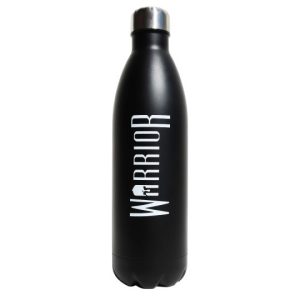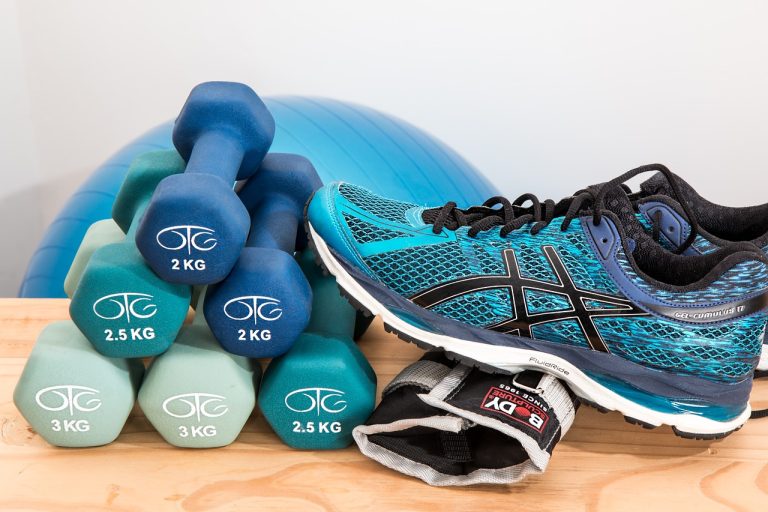Staying hydrated is essential for maintaining good health. From boosting your energy levels to promoting proper digestion, the importance of staying hydrated cannot be emphasized enough. In this article, we will explore the numerous benefits of hydration and why it should be a top priority in your daily routine. So grab a glass of water and let’s dive into the significance of staying hydrated for your overall well-being.
Table of Contents
Toggle1. Hydration and the Body
1.1. The Importance of Water for the Body
Water is an essential component of the human body, playing a vital role in maintaining overall health and well-being. It makes up a significant percentage of our body weight, highlighting its importance in numerous bodily functions. Staying properly hydrated is crucial for ensuring the optimal functioning of various systems, organs, and cells within the body.
1.2 Functions of Water in the Body
Water serves several important functions in the body, which emphasize the necessity of maintaining adequate hydration levels. Firstly, water acts as a transportation medium, facilitating the delivery of nutrients and oxygen to cells and tissues. It also aids in the removal of waste products and toxins from the body, supporting efficient detoxification processes.
Water also plays a key role in regulating body temperature. Through sweat production and subsequent evaporation, the body can effectively cool down and prevent overheating. Additionally, water helps lubricate joints, enabling smooth movements and reducing the risk of joint-related discomfort or injury.
2. Benefits of Staying Hydrated
2.1. Improved Physical Performance
Staying hydrated is essential for optimizing physical performance, whether you are an athlete or simply engaging in regular exercise. Dehydration can significantly impact your ability to perform at your best, as even mild dehydration can lead to fatigue, reduced endurance, and impaired strength. By maintaining adequate hydration levels, you can enhance your energy levels, promote muscular function, and improve overall physical performance.
2.2. Healthy Weight Management
If you are striving to achieve or maintain a healthy weight, staying hydrated is key. Drinking water can help promote feelings of fullness and reduce calorie intake, as it can serve as a healthy alternative to sugary beverages or unnecessary snacking. By replacing calorie-laden drinks with water, you can better manage your weight and support your overall health goals.
2.3. Enhanced Brain Function
Proper hydration is essential for optimal brain function. Dehydration can impair cognitive performance, leading to difficulties in concentration, memory, and overall mental clarity. By staying adequately hydrated, you can support cognitive processes, enhance focus, and promote overall brain health.
2.4. Improved Digestion
Water plays a vital role in maintaining a healthy digestive system. It helps break down food, supports the absorption of nutrients, and facilitates the smooth movement of waste through the intestines. Inadequate hydration can result in constipation and other digestive issues. By staying hydrated, you can promote regular bowel movements and support proper digestion.
2.5. Detoxification and Waste Removal
Drinking enough water is crucial for effective detoxification and waste removal in the body. Water helps flush out toxins and waste products through sweat and urination, allowing your body to eliminate harmful substances. Proper hydration supports the functioning of organs involved in detoxification, such as the kidneys and liver, promoting overall health and well-being.
2.6. Skin Health
Water is often considered a natural, inexpensive, and readily available skincare product. It plays a vital role in maintaining skin health, as it helps flush out toxins and supports the elasticity and plumpness of the skin. Proper hydration can contribute to a youthful appearance, reduce the likelihood of dryness or irritation, and promote a healthy complexion.
2.7. Body Temperature Regulation
Water is crucial for maintaining a stable body temperature, especially during physical activity or exposure to hot environments. Sweat production, triggered by hydration, enables the body to cool down when it becomes overheated. Proper hydration helps prevent heat-related illnesses and ensures that your body can regulate its temperature effectively.
2.8. Joint Lubrication
Adequate hydration is essential for healthy joints. Water helps lubricate the joints, reducing friction and facilitating smooth movements. Proper hydration can help prevent joint discomfort, stiffness, or potential injuries related to joint wear and tear.
2.9. Preventing Kidney Stones
Staying well-hydrated can significantly reduce the risk of kidney stones. Kidney stones are formed when certain minerals and salts in the urine crystallize and bind together. Sufficient water intake helps dilute the urine, reducing the concentration of these substances and minimizing the likelihood of stone formation. By drinking enough water, you can actively prevent the development of painful kidney stones.
3. Signs and Symptoms of Dehydration
3.1. Thirst
Feeling thirsty is your body’s way of signaling that it needs more water. It is one of the earliest signs of dehydration and serves as a reminder to drink fluids.
3.2. Dry Mouth and Bad Breath
When you are dehydrated, you may experience a dry mouth and notice that your breath becomes unpleasant. This occurs as a result of reduced saliva production, which serves as a natural mouthwash and aids in keeping your mouth moist.
3.3. Fatigue and Weakness
Dehydration can lead to feelings of fatigue and weakness. When the body lacks sufficient water, it can impact energy levels and overall physical performance.
3.4. Headaches and Dizziness
Headaches and dizziness are common symptoms of dehydration. Inadequate hydration can lead to decreased blood volume and decreased oxygen supply to the brain, resulting in these discomforting symptoms.
3.5. Dark Urine and Decreased Urination
Dark-colored urine is a clear sign that you are not drinking enough water. Ideally, urine should be pale yellow or straw-colored. Additionally, if you are experiencing a significant decrease in urination frequency, it may indicate dehydration.
3.6. Dry Skin and Lips
When the body lacks proper hydration, the skin and lips may become dry, flaky, or chapped. This is a result of decreased water content in the body, leading to reduced skin moisture.
3.7. Muscle Cramps
Dehydration can contribute to the occurrence of muscle cramps. Insufficient water levels affect the normal functioning of muscles and can lead to painful cramping.
4. Factors Affecting Hydration Levels
4.1. Climate and Temperature
The climate and temperature of your surroundings can significantly impact your hydration needs. Hot and humid environments, as well as high altitudes, can increase water loss through perspiration and evaporation, necessitating increased fluid intake.
4.2. Physical Activity and Sweat Loss
Engaging in physical activity can lead to increased water loss through sweat. The duration and intensity of exercise, as well as your individual sweat rate, contribute to the amount of fluid you need to replenish.
4.3. Illness and Vomiting
Illnesses that involve fever, vomiting, or diarrhea can result in fluid loss and dehydration. It is crucial to drink plenty of fluids to replenish lost water and electrolytes during illness.
4.4. Alcohol and Caffeine Consumption
Alcoholic and caffeinated beverages can have a diuretic effect, increasing urine production and potentially leading to dehydration. It is important to balance the consumption of these beverages with adequate water intake.
4.5. Medications and Diuretics
Certain medications, such as diuretics, can increase urine production and potentially lead to dehydration. If you are taking such medications, it is important to consult with your healthcare provider regarding your fluid intake needs.
5. How Much Water Should You Drink?
5.1. General Hydration Guidelines
While individual hydration needs may vary depending on factors like age, weight, and activity level, a general guideline is to aim for around 8 cups (64 ounces) of water per day. This can be achieved through a combination of water, other beverages, and foods with high water content.
5.2. Factors Influencing Fluid Needs
Certain factors may increase your fluid needs. These include intense physical activity, hot weather, high altitudes, breastfeeding, and specific health conditions. It is important to adjust your fluid intake accordingly to ensure adequate hydration.
5.3. Monitoring Hydration Status
Monitoring your hydration status can be done by observing your urine color and frequency. Pale yellow or straw-colored urine usually indicates sufficient hydration, while darker-colored urine may suggest the need for increased fluid intake.
6. Tips for Staying Hydrated
6.1. Carry a Water Bottle
Carrying a reusable water bottle with you can serve as a visual reminder to drink water throughout the day. Having access to water at all times makes it easier to stay hydrated.
6.2. Set Hydration Goals
Setting goals for daily water intake can help ensure that you are consistently meeting your hydration needs. Aim to drink a certain amount of water by specific times of the day to stay on track.
6.3. Infuse Water with Flavor
If you find plain water unappealing, infusing it with natural flavors like lemon, cucumber, or berries can make it more enjoyable. Experiment with different combinations to find your favorite infused water recipes.
6.4. Eat Hydrating Foods
In addition to drinking fluids, you can also increase your hydration through the consumption of hydrating foods. Fruits and vegetables with high water content, such as watermelon, cucumbers, and oranges, can contribute to your overall fluid intake.
6.5. Monitor Urine Color
As mentioned earlier, monitoring your urine color can provide valuable insights into your hydration status. Aim for pale yellow or straw-colored urine as an indication of proper hydration.
6.6. Set Reminders
In our busy lives, it can be easy to forget to drink enough water. Setting reminders on your phone or using hydration-tracking apps can help you remember to stay hydrated throughout the day.
7. Hydration and Exercise
7.1. Pre-Exercise Hydration
To optimize performance and prevent dehydration during exercise, it is essential to adequately hydrate beforehand. Aim to consume fluids in the hours leading up to exercise and drink at least 16-20 ounces of water about 2 hours before your workout.
7.2. Fluid Intake During Exercise
During exercise, it is important to drink fluids regularly to replace the water lost through sweat. Aim to drink about 7-10 ounces of water every 10-20 minutes during physical activity, especially in longer or intense workouts.
7.3. Post-Exercise Hydration
After exercising, replenishing fluids and electrolytes is crucial for recovery. Consume fluids containing both water and electrolytes to effectively rehydrate your body. Including a carbohydrate-protein drink or a sports recovery drink can also help replenish energy stores and aid in muscle recovery.
8. Hydration and Specific Populations
8.1. Children and Hydration
Proper hydration is essential for children’s growth and development. Children have higher water requirements relative to their body weight, making it important to ensure they drink an adequate amount of water throughout the day. Encouraging regular water breaks and offering hydrating foods can help children maintain proper hydration levels.
8.2. Elderly and Hydration
As people age, the body’s ability to conserve water and sense thirst can diminish. Elderly individuals may be at a higher risk of dehydration, especially if they have underlying health conditions or take specific medications. It is essential for caregivers to monitor the hydration status of elderly individuals and encourage regular fluid intake.
8.3. Pregnant and Nursing Women
Pregnant and nursing women have increased fluid needs to support the growth and development of the baby and to sustain milk production. It is important for these women to pay attention to their hydration levels and drink enough water to meet the increased demands of their bodies.
8.4. Athletes and Hydration
Athletes have higher fluid requirements due to increased sweating during training and competitions. It is crucial for athletes to proactively hydrate before, during, and after physical activity to optimize performance, prevent dehydration, and promote effective recovery.
9. Dehydration and Health Risks
9.1. Heat-Related Illnesses
Failure to stay properly hydrated in hot and humid environments can lead to heat-related illnesses, such as heat exhaustion or heatstroke. These conditions can be serious and require immediate medical attention. It is important to prioritize hydration, especially during hot weather or when engaging in strenuous physical activity in high temperatures.
9.2. Kidney and Urinary Problems
Chronic dehydration can contribute to the development of kidney stones and urinary tract infections. Proper hydration helps dilute urine and prevent the accumulation of minerals that can lead to stone formation. By staying hydrated, you can support the health of your kidneys and urinary system.
9.3. Digestive Issues
Inadequate hydration can negatively affect the digestive system, leading to constipation and digestive discomfort. Proper fluid intake ensures the softness and bulkiness of stools, facilitating smooth bowel movements and preventing constipation.
9.4. Cognitive Impairment
Dehydration can impair cognitive function and lead to difficulties in concentration, memory, and overall mental performance. Chronic dehydration may even increase the risk of cognitive decline and impact long-term brain health.
10. Conclusion
Staying hydrated is crucial for maintaining overall health and well-being. The importance of water for the body cannot be overstated, as it plays a role in numerous bodily functions and supports optimal performance of various systems and organs. By recognizing the benefits of staying hydrated, understanding the signs and symptoms of dehydration, and implementing strategies for maintaining proper hydration levels, you can prioritize your health and enhance your overall quality of life. Remember to make hydration a priority and ensure you drink enough water throughout the day to reap the numerous benefits it offers.








